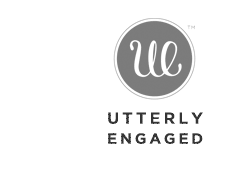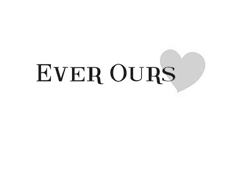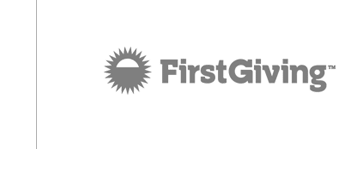How to Promote an Event on Social Media: Complete Marketing GuideWhen it comes to promoting an event on social media, you need a clear strategy to cut through the noise. Identifying your audience and choosing the right platforms are crucial first steps. Then, you’ll need to create compelling content that resonates. But what elements truly make your posts stand out? Let’s explore the essential tactics that can take your event promotion to the next level. Understanding the Role of Social Media in Event PromotionIn promoting your event, understanding the impact of social media is essential for effectively reaching your target audience. Research indicates that a significant proportion of younger demographics, specifically 61% of Millennials and 30% of Generation Z, utilize social media channels to discover events. Therefore, integrating social media into your event promotion strategy is advisable. Using platforms like Facebook to create event pages can facilitate RSVPs and foster community engagement. Additionally, user-generated content is a valuable resource for enhancing engagement; studies show that 80% of event attendees are open to paying higher prices for events that are trending or have garnered social media attention. By leveraging social media, organizers can expand their reach beyond traditional marketing channels, generate excitement around their events, and encourage real-time discussions, which can further amplify interest and participation. Defining Your Target Audience and Platform SelectionEffective event promotion relies on accurately identifying your target audience and choosing the appropriate platforms for engagement. Research indicates that 61% of Millennials and 30% of Gen Z utilize social media as a means for discovering events. Therefore, understanding the demographics of your audience is essential for successful outreach. Engagement metrics from your social media accounts can provide insights into where your audience is most active. By analyzing these metrics, you can optimize your promotional strategies. Additionally, examining competitors who've successfully engaged similar audiences can inform your platform selection. Different platforms serve distinct purposes: LinkedIn is generally more effective for promoting professional gatherings, while TikTok may engage younger demographics more successfully. Crafting a social media strategy that aligns with these preferences can enhance your event promotion efforts and help ensure effective outreach. Crafting Compelling Content for EngagementCreating effective content is essential for engaging your audience during event promotion. High-quality visuals and videos can play a significant role in attracting attention and enhancing engagement. Interactive formats, such as polls and quizzes, can help understand audience preferences and facilitate dialogue among participants. Storytelling that evokes emotion can generate relatable content that's more likely to be shared, thereby increasing visibility. Additionally, offering sneak peeks and behind-the-scenes insights can generate interest and anticipation for the event. Promoting user-generated content through an event-specific hashtag can foster a sense of community among attendees, which may lead to higher engagement rates. These strategies, when executed thoughtfully, can contribute to the development of content that effectively resonates with a broad audience. Leveraging Event Hashtags for Increased VisibilityUtilizing an event hashtag can significantly enhance the visibility and engagement of an event. A unique and easily memorable hashtag allows attendees to share content across various platforms. Research indicates that posts featuring relevant event hashtags achieve approximately 12.6% more engagement than those without, thereby increasing overall reach. Furthermore, it's reported that about 24% of individuals discover events through connections with like-minded individuals, highlighting the importance of promoting the hashtag among attendees. To reinforce branding, it's advisable to include the hashtag in promotional materials, such as posters and emails. Additionally, employing analytics tools to monitor the usage of the hashtag is essential for assessing its effectiveness and identifying potential areas for improvement. This approach contributes to creating a more successful event experience for all participants. Setting Up Official Event Pages on Social MediaEstablishing official event pages on social media platforms such as Facebook and LinkedIn is an effective strategy for enhancing the visibility of your event hashtag. These platforms serve as a space for attendees to RSVP and access essential information about the event. It's important to include crucial details such as the date, time, location, and a direct registration link on the event page. Additionally, optimizing the event page with clear descriptions and speaker bios can improve audience engagement. Social media features allow attendees to conveniently auto-fill their registration information via LinkedIn, which can streamline the registration process. To maintain interest and excitement before the event, it's advisable to regularly update the event pages with promotional materials and visuals. This approach helps to keep potential attendees informed and engaged leading up to the event. Utilizing Live Video to Build AnticipationUtilizing live video can be an effective strategy for engaging audiences prior to an event. Platforms such as Facebook Live facilitate real-time interaction, enabling attendees to pose questions and provide comments. Presenting behind-the-scenes content or early glimpses of event preparations can enhance interest and anticipation among viewers. Additionally, incorporating highlights from the upcoming event during live broadcasts may promote a sense of urgency among potential attendees. Research indicates that live video content tends to have a higher share rate compared to other forms, potentially increasing overall reach and visibility. By fostering discussions and interactions through live video, organizations can maintain interest and engagement on social media even after the event has concluded. This approach can lead to sustained conversations, contributing to the overall success of the marketing strategy surrounding the event. Running Contests and Giveaways for ExcitementTo enhance excitement for your event, implementing contests and giveaways can effectively improve visibility. By offering prizes that are closely aligned with the event, you can engage participants and encourage their involvement. User-generated content, such as participants tagging friends or sharing event-related posts, has been shown to increase engagement on social media platforms by approximately 28%. Incorporating time-sensitive promotions can create a sense of urgency, potentially boosting ticket sales and attendance rates. Partnering with local businesses or influencers may also provide added credibility and extend your reach to their established audience. Engaging Influencers to Expand ReachEngaging influencers can be an effective strategy for expanding event reach. Collaborating with influencers who've established credibility within specific industries may enhance brand visibility, as research indicates that a significant percentage of consumers trust their recommendations. To begin this process, it's advisable to create a targeted list of 10 to 25 industry-relevant influencers whose followers align with your target demographic. Encouraging these influencers to produce authentic content, such as sharing personal experiences or industry insights, can help generate interest among their audiences. Additionally, providing incentives like exclusive access to event features or promotional codes may further motivate influencers to participate. To assess the effectiveness of influencer collaborations, it's important to monitor key performance metrics, including likes, shares, and engagement rates. This data allows event organizers to evaluate the influence of promotional efforts and adjust future marketing strategies accordingly. Measuring Success With Social Media MetricsCollaborating with influencers can be an effective strategy for promoting events on social media, but it should be part of a broader approach. Engagement metrics, such as likes and shares, can provide preliminary insights into audience interest. It's important to monitor ticket sales conversion rates in conjunction with social media referral traffic through analytics dashboards, which can help identify the most effective promotional channels. Post-event engagement can be assessed by examining event-specific hashtags, which can indicate the level of community participation. Additionally, gathering audience feedback through surveys can offer valuable insights regarding the elements of the event that resonated with attendees and areas that may require improvement. Utilizing analytics tools such as Google Analytics can provide further data on user behavior on the event landing page, specifically measuring metrics like session duration and bounce rates. This information can be instrumental in refining marketing strategies for future events. Sustaining Engagement and Conversation After the EventPost-event engagement is essential for maintaining attendee interest and fostering community involvement. A proactive approach involves sharing follow-up content that includes key insights from the event and testimonials from participants. This can encourage ongoing discussions and engagement. Encouraging attendees to generate content using a dedicated event hashtag can also be effective. This practice allows for the continuation of conversations and can help attract wider audiences. Moreover, creating social media groups specifically for networking can facilitate connections among attendees, enabling them to share experiences and insights even after the event has concluded. Sustained engagement not only reinforces the organization’s position as a thought leader but also cultivates an active community that appreciates the relationships formed during the event. ConclusionPromoting your event on social media can truly elevate its visibility and attendance. By understanding your audience, creating engaging content, and leveraging the power of strategic hashtags and influencer collaborations, you’ll make a memorable impact. Don’t forget to measure your success with metrics and keep the conversation going even after the event. With these tactics, you can foster community engagement that lasts beyond the big day. Get ready to make your event a success! |
|
Copyright © 2011 DL/sh Design. Utterly Engaged. Ever Ours. All Rights Reserved. |













